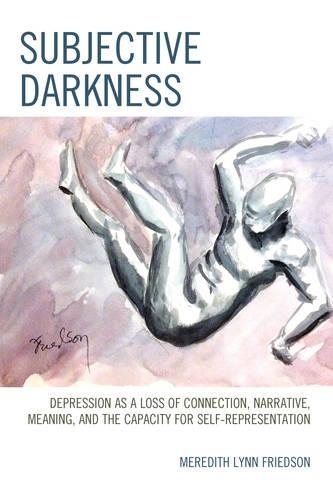
Subjective Darkness: Depression as a Loss of Connection, Narrative, Meaning, and the Capacity for Self-Representation
(Paperback)
Available Formats
Publishing Details
Subjective Darkness: Depression as a Loss of Connection, Narrative, Meaning, and the Capacity for Self-Representation
By (Author) Meredith Lynn Friedson
Bloomsbury Publishing PLC
Rowman & Littlefield Publishers
4th January 2017
United States
Classifications
Professional and Scholarly
Non Fiction
Abnormal psychology
Social counselling and advice services
616.8527
Physical Properties
Paperback
192
Width 153mm, Height 230mm, Spine 14mm
272g
Description
In this book, depression is explored as a form of loss that manifests itself as an inability to connect with others, to narrate ones own existence, to derive meaning from life experiences, and ultimately, to symbolically represent ones inner world. This loss has the capacity to evolve into a chronic condition that can be seen as a form of subjective darkness. A hermeneutic, interpretative phenomenological approach is used that seeks to preserve the individual voices of each narrative, while embedding their stories in theoretical and current literature on depression. The clinical cases of five individuals are used to elucidate some common characteristics of depressive experience. Themes of loss, death, darkness, the intergenerational transmission of trauma, and unmetabolized pain are explored through a psychoanalytic lens that seeks to shed light on the underlying dynamics of chronic depression.
Reviews
An engaging, in-depth discussion of the history of various conceptualizations of depression and personal cases of depression through the lens of psychodynamic theory. -- Lauren M. Bylsma, University of Pittsburgh
Author Bio
Meredith Friedson, PhD, is a clinical psychologist who specializes in trauma, depression, and loss. She received her PhD from The Derner Institute of Advanced Psychological Studies at Adelphi University in New York. Her research interests include chronic depression and other mood disorders, the repetition and transmission of intergenerational trauma, family narratives, qualitative research, and social justice issues. She is currently conducting research on police stops, race, and the psychological effects of these practices on those who are stopped.
